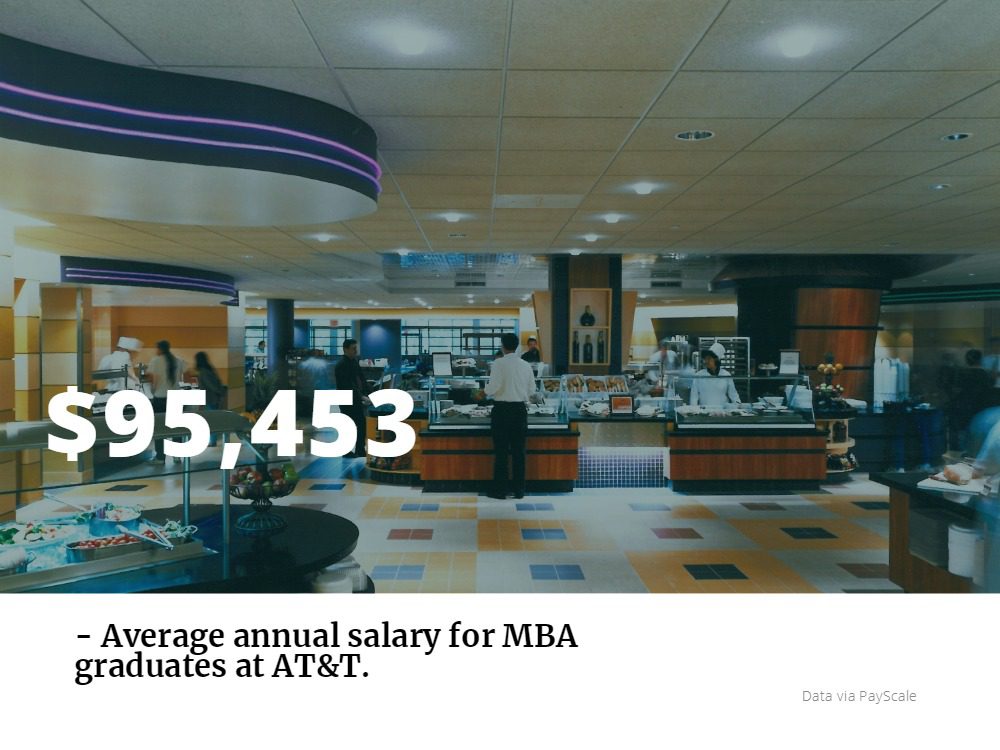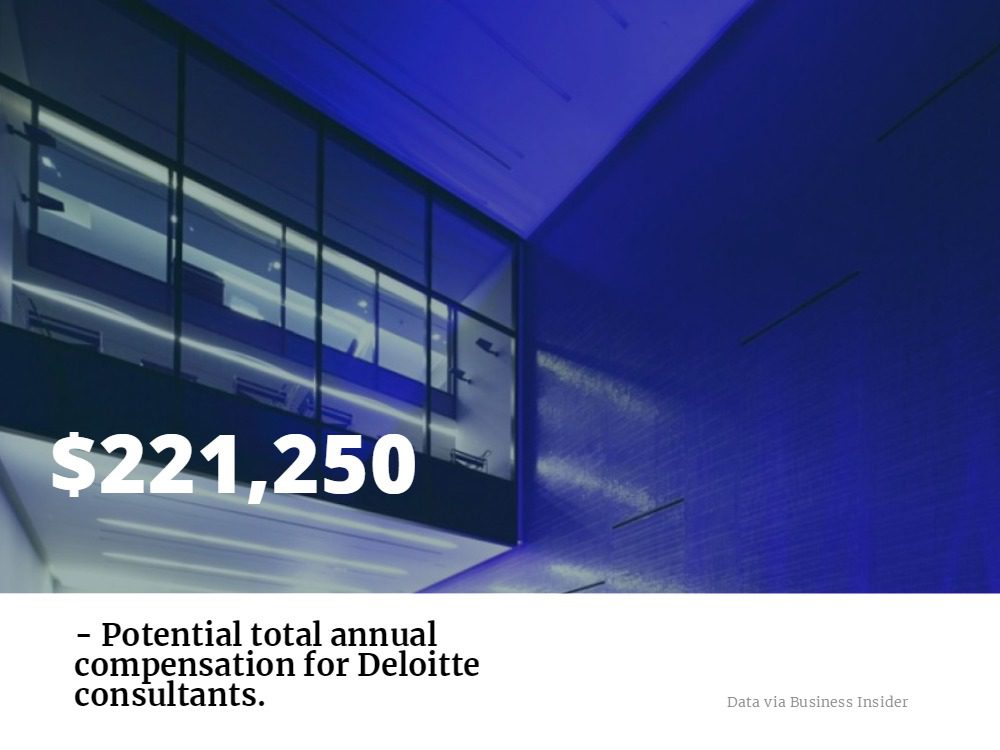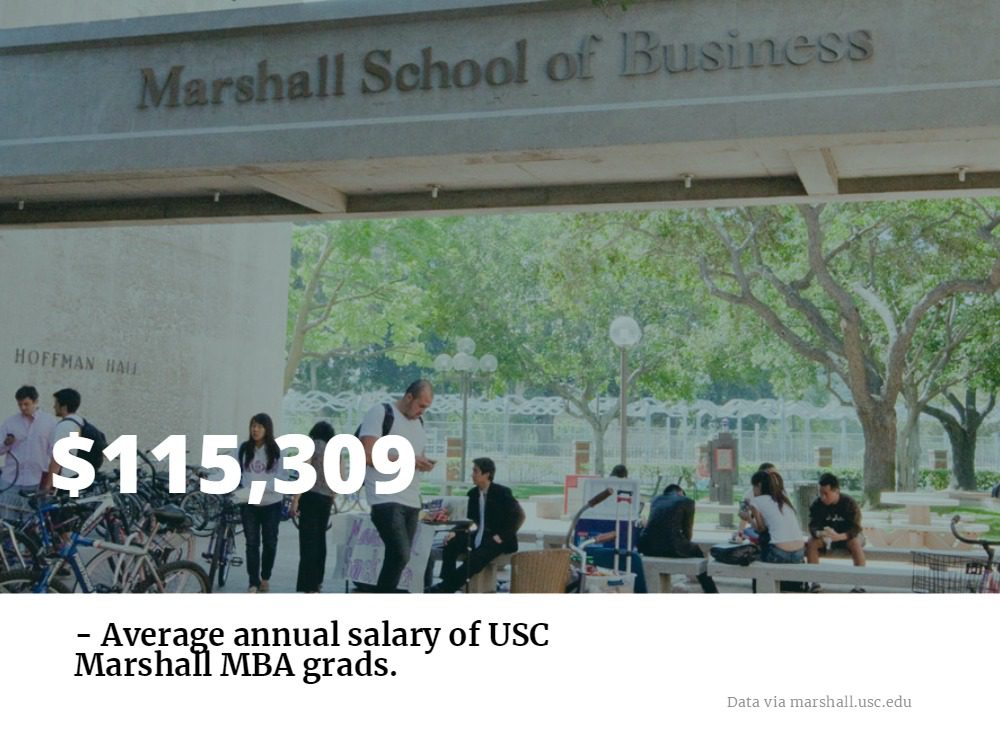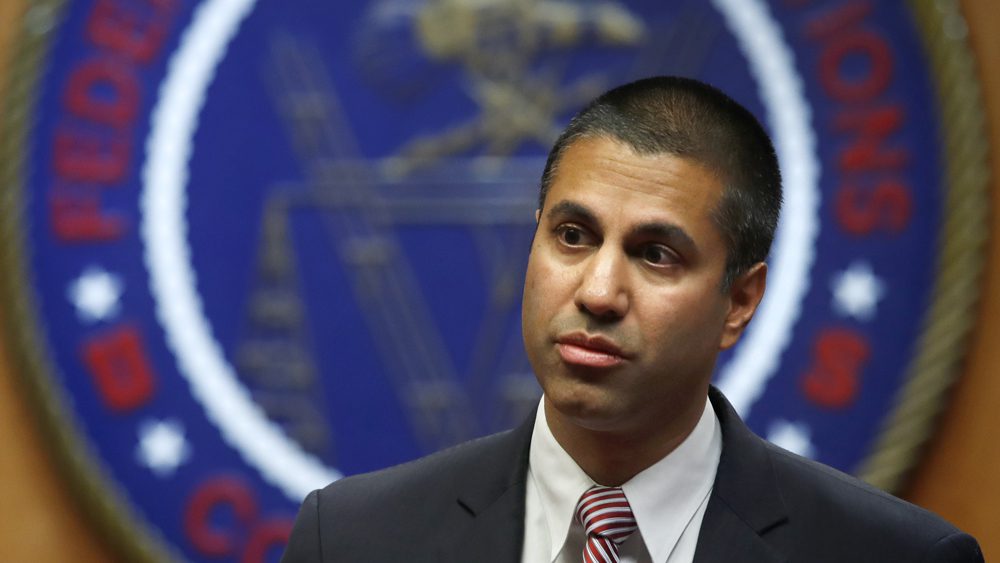The Newest Fordham EMBA, and More – New York News

Let’s explore some of the most interesting stories that have emerged from New York business schools this week.
New EMBA Program Prepares Athletes and Artists for Second Careers – Gabelli Connect
Earlier this month, the Fordham Univesity Gabelli School of Business unveiled a new EMBA program that caters to athletes and artists. Associate Dean Francis Petit, who will preside over the new program, writes about the specific segment the EMBA will service:
“Overall, this segment is looking to reinvent themselves and reinvention is oftentimes arduous. This program will provide the necessary tools.”
Petit compares the collective and collaborative academic journey that participants will take to the experiences athletes had among their teammates.
According to the article, the new EMBA will include “team projects, career coaching, presentations, and site visits to companies in the New York area, along with a capstone project.”
You can read more about the new Gabelli EMBA program here.
What Everyone Needs to Know When Traveling Abroad – Columbia Business School News
New research co-authored by Columbia Business School’s Michael Morris explores the question of how far should you go to “adopt local ways when your work brings you abroad?”
Not surprisingly, Morris’s paper “Do As the Romans Do? Diversity Ideologies and Trust in Evaluations of Cultural Accommodation” finds that the answer is complicated.
“If you’re wondering whether to try to speak limited Spanish in Barcelona or say ‘G-Day’ in Sydney, the answer is a yes. Accommodate to a moderate extent and locals will appreciate the gesture,” he writes. “Visitors need to be careful not to overdo it, since going too far can cause a backlash. This research sends the simple message to foreign visitors that effort matters. It’s a sign of respect and authenticity.”
You can read more of Morris’ advice here.
The Secret to Influential Management Research? It All Comes Down to Data – Stevens Institute of Technology School of Business News
The Stevens Institute of Technology School of Business recently profiled Emeritus Professor Dr. Richard Reilly, whose pioneering work in talent management research was honed during a distinguished career designing studies at Bell Labs, AT&T, and ETS. The article notes that Dr. Reilly was “recognized by Academy of Management Learning and Education as being among the top 1 percent of all researchers in human resource management and strategy, as measured by textbook citations.”
Dr. Reilly notes, “Understanding these organizations and how they work gave me access to data that helped me do meaningful research, write articles and teach to what was actually going on in the workplace.”
Dr. Reilly explains one of the impetuses for his research:
“The issue with testing is that the outcome in higher education is so much harder to pin down. Is it grades, or something more nuanced, more complex? I got interested in looking in the issues around fairness in tests, as it relates to gender and background.”
You can read more about Dr. Reilly here.
New MBA Jobs: McKinsey, AT&T, Barclays and More

Big time companies are hiring in some the world’s most bustling metros. Check out the hottest new MBA jobs at top consulting companies, supply chain departments, and financial institutions across the country below:
Top MBA Recruiters: AT&T

Finding employment after graduating from an MBA program can be a challenge for some. Thankfully, new MBAs are never alone in the process. From companies that actively recruit talent from business schools throughout the country, to MBA programs themselves helping to facilitate interviews and job referrals for their students, students should be sure to take advantage of resources available to them.
A look at 2017 employment data from a top MBA program like the University of Chicago’s Booth School of Business reveals the overwhelming trend: a whopping 89.2 percent of students found employment through university-facilitated avenues, be it on-campus recruitment and interviews, networking events, or through a Booth-facilitated summer employer. The success of campus recruitment benefits everyone, not only because universities are willing to open their doors and advocate for their students, but because top companies go out of their way to recruit young talent and create opportunities for them.
One such company is American multinational telecommunications holding company, AT&T. Founded in 1983 as the Southwestern Bell Telephone Company—part of the Bell Telephone Company with roots in the late 19th century—today AT&T has more than 254,000 employees worldwide and $190 billion in revenue. With a commitment to MBA graduates through internships and early career development programs, AT&T makes the grade as a top recruiter and employment destination for MBAs.
What Is An AT&T Career Like for MBAs?
It should be no surprise that MBAs love working at AT&T when you know the kind of investment this company makes in the educational development of its employees. In 2016, AT&T spent $250 million on employee training and invested roughly 20 million hours into the process. With so many opportunities for ambitious team members to accelerate their careers through leadership and development programs, this is the perfect company for those looking to quickly rise into leadership roles.
AT&T has been awarded many times for its workplace culture, including being named on Fortune‘s ‘100 Best Companies to Work for in 2018‘ and 3rd overall on the Diversity Inc. list of the ‘Top 50 Companies for Diversity‘ in 2018.
Of course, it pays to have an AT&T career, even beyond a positive workplace culture. According to PayScale data, MBA graduates at AT&T earn an average annual salary over $95,000. This can range as high as $142,000 for those in operations management. Employees, including interns, are rewarded with competitive compensation and benefits, including paid holidays, time off, and discounts for AT&T products.

Getting Started
MBA students interested in starting an AT&T career should keep an eye out for the various recruitment events set up through their university, where they can apply on campus and may be selected to interview with college recruiting managers. Because of the company’s heavy investment in a diverse workforce, AT&T also has a strong presence at recruitment conferences like the Forté Foundation for female business leaders, Reaching Out MBA for LGBT candidates, and the National Black MBA Association (NBMBAA).
Many MBAs start their AT&T career through its many internship opportunities, which are found at locations throughout the country and typically last 10-12 weeks. AT&T offers these paid internships a huge variety of fields, such as data analytics, cybersecurity, entertainment group technology, software development, and leadership, among others.
In addition to internships, MBA graduates may apply for one of the many AT&T career development programs. These are full-time, paid rotational programs that may last anywhere from two to three years, providing hands-on experience, exposure and opportunity. Development programs at AT&T include:
- B2B Sales
- Cybersecurity Development
- Engineering and Operations Development
- Finance Leadership Development
- Leadership Development
- Software Development
What Does AT&T Look for in MBA Candidates?
When hiring for its MBA internships and development programs, AT&T looks for students with at least three years of professional experience with the ability to collaborate on complex issues and thrive in a leadership role. The company seeks candidates who are passionate about the role technology can play in people’s lives and its capacity to transform.
In addition to the internships and early career programs, AT&T also looks for more experienced MBA holders for higher-level executive and management positions. For these roles, the company seeks candidates with at least five to eight years in experience related to the role with the ability to work in a team, be a self-starter, and think critically.
The Five Biggest Texas Internship Destinations for MBAs

Whether an internship is optional or required for your MBA program, interning at top companies in your metro can not only offer hands-on work experience, but the chance to develop professional relationships that can shape the rest of your career.
Major Texas metros like Houston and the Dallas-Fort Worth area are increasingly becoming known for their roles in business and technology, making these cities the perfect spot for students to begin their professional careers with summer internships. Often these internships can lead to continued work and career opportunities after graduation. For example, 100 percent of students at a top MBA program like TCU’s Neeley School of Business earned internships in 2016, nearly half of whom continued projects for their employer on into the following year.
The Five Biggest Texas Internship Destinations
Hewlett Packard (HP)
Headquartered in Palo Alto, CA, the multinational informational technology company, HP, has a strong presence in Texas’ biggest metros. With a massive range or products, from personal computers to 3D printers, HP has 55,000 employees around the world and a net income of $2.53 billion USD.
HP and their separate Enterprise Service business, Hewlett-Packard Enterprise, offer a number of internships for MBA students and are considered one of the top intern destinations for schools like the Naveen Jindal School of Management at the University of Texas at Dallas and Rice University’s Jones Graduate School of Business.
HP offers a 12-week paid summer internship program for students in a variety of fields. Current openings include positions like:
- Personal Systems MBA Project Management Intern (HP)
- Personal Systems MBA Marketing Summer Intern (HP)
- Financial Associate MBA Intern (Hewlett Packard Enterprise)
Texas Instruments
It likely doesn’t come as a surprise that technology company Texas Instruments, headquartered in Dallas, is a top employer for MBA interns in the region. The company, which as of 2017 had a profit margin of $3.68 billion, has a number of different career paths available for their interns, with rotational opportunities after students have graduated that can help accelerate their career. Business roles at the company include focuses such as Finance and Operations, Human Resources, Information Technology, Marketing Communications, and Supply Chain Analyst.
With internship opportunities in engineering as well as the business fields, Texas Instruments consistently tops lists for MBA interns in programs like the aforementioned TCU Neeley School of Business and other top Dallas schools.
AT&T
Headquartered in Dallas, AT&T today is the world’s largest telecommunications company and second largest provider of mobile phone services in the country. And with 254,000 employees worldwide, it makes sense that this massive company would seek to create a talent pipeline for MBA students in the area. AT&T tops the list as an internship destination for students in schools like Texas A&M University’s Mays Business School and Jindal at UT Dallas, among others.
AT&T offers summer internships in a number of different focuses and fields, which provide real-world projects, specialized training programs and leadership exposure. Currently open positions with the company include a Leadership Internship, Finance Internship, and Software Development Internship.
Deloitte
Another company making an impact for student interns at schools like Neeley, Rice, and Mays, is “Big Four” accounting organization Deloitte. The company is headquartered in London but with over 263,000 employees throughout the world. In 2017, Deloitte officially became the fourth largest privately owned company in the United States.

Deloitte’s commitment to recruiting talented finance students is reflected in the many MBAs who find both internships and full-time positions with the company. A Texas internship at Deloitte typically last eight to ten weeks during the summer and continue through at least one semester of the school year. MBA student interns have access to a number of incredible resources during their internship at Deloitte, including a consulting immersion program, women’s leadership launch, and the chance to participate in a number of case competitions.
Accenture
With headquarters in Dublin, Ireland, the work of global management consulting company Accenture may seem worlds away from Texas, U.S. But with nearly 500,000 employees around the world, this Fortune Global 500 company has left its mark as a top employers of MBA interns at schools like TCU Neeley and Rice’s Jones School of Business.
Accenture’s internship program is a ten to twelve week experience throughout the summer that encourages students to empower themselves through innovation. Student interns have access to programs like the Student Leadership Conference, Buddy Program, Summer Analyst Day of Service, and group outings. Those who are able to turn their internship stays with Accenture may also be awaiting a hefty payday when it comes to full-time employment after earning an MBA.
“According to Management Consulted, post-MBA salaries at Accenture hover around a base salary of $140-145,000 with a $25,000 signing bonus, an $8,000 relocation check and a performance bonus up to $44,000. Interns typically clock $31 per hour, plus overtime and a signing bonus.”
The Best Long Angeles MBA Return on Investment Bets

Return on Investment (ROI) is one of the most important factors a prospective MBA can take into consideration when choosing the right business school.
Of course, the true value of each MBA program may ultimately be something impossible to measure. The kind of connections made through professional networking, the soft skills that students attain which help them navigate through both their personal and professional life—these aren’t things that can be easily quantified. But, thankfully, factors like average salary increase, rate of post-graduate employment and the overall tuition of a program are. And these numbers can help students start to better see an overall picture of what each MBA is worth.
The Best Long Angeles MBA Return on Investment
The Marshall School of Business – USC
The Marshall School of Business at the University of Southern California is consistently one of the top ranked MBA programs in the state of California and even throughout the country. Specific ROI aside, these sorts of honors should also be a factor when considering the overall value of the program: for example, Marshall has been named the third best program for “Most Satisfied Business School Graduates” by Forbes and sixth on The Economist’s ranking of “Best Alumni Networks.”
Based on tuition for the 2017-18 school year, the total expense (tuition, fees and living expenses included) to pursue a full-time MBA at Marshall would be $95,881 for the first year and $82,522 for the second, for a total of $178,403.
Now take into consideration the fact that the average salary for graduates of Marshall’s full-time MBA program within three months of graduation is $115,309, and that the large majority of job offers (38 percent) for MBA students came from on-campus recruiting or job postings through the university. The second highest source of employment (21 percent) came from internships held while in the MBA program. Furthermore, a number of top organizations—such as Apple, AT&T, and Walt Disney Studios—hired the graduates of Marshall’s 2016 MBA class. All of these factors boost the overall ROI of Marshall’s program, making it one of the top valued programs in L.A.—even with the high price tag.

Anderson School of Management – UCLA
The Anderson School of Management at UCLA is another program which offers a high ROI when considering the types of opportunities and salaries available to students after graduation. While the tuition cost is certainly high—roughly $194,220 (including fees and living expenses) for the the two years of the program, the benefits to students are undeniable.
A look at the full-time employment report for the most recent MBA class finds that 92.4 percent of students were offered full-time employment within just three months of graduation, with 87.7 percent acceptances. By far (72.2 percent) , students found their employment opportunities through Anderson-facilitated resources, such as internships, on-campus recruiting, or from UCLA Anderson alumni and classmates.
The salaries for graduating Anderson students also reveals a positive trend: the average post-graduate compensation was $118,150, with 70.6 percent of students earning signing bonuses of up to $89,500. The connections sewn by Anderson internships and alumnae also reveal a significant payoff in the types of organizations hiring Anderson alum: companies like NBC Universal, IBM, Barclays, Google, and other major corporations now have Anderson MBA graduates on staff.
The Paul Merage School of Business – University of California, Irvine
The UC Irvine Paul Merage School of Business is one of the top business schools in the Los Angeles metro area, as evidenced by its consistently high rankings from various publications, such as the Financial Times and U.S. News & World Report.
With the program’s recognition for its high lifetime earnings combined with the relatively low cost the degree, it’s no surprise that that the program at UC Irvine produces a high return on investment. The estimated total annual cost of an MBA at Merage ranges from $67,422—$83,967, depending on if you whether or not you are a resident of California and whether or not you will be using campus. This is compared with an average post-graduate salary of $97,808 for the 2017 graduating class. About 50 percent of all students were employed by graduation, and 81 percent held full-time jobs within three months.
Graziado School of Business and Management – Pepperdine University
One of the reasons Pepperdine’s Graziado School of Business boasts such a high return on investment is the many different formats in which students can pursue a full-time degree. With the opportunity to take the full-time MBA over the course of 12, 15, or 20 months, the Graziado MBA typically costs less overall ($74,250 for the 12-month program, $99,000 for all others) and means less time away from a full-time paycheck.
Combine this with the success rate of 82 percent of students accepting job within three months after graduation and a $120,000 starting salary (at highest), and its understandable why Graziado graduates find incredible value in their degree.
The Potential Impacts of Net Neutrality on Higher Education

F.C.C. Chairman Ajit Pai’s decision last week to repeal Obama-era net neutrality regulations, which inhibited ISPs from paid prioritization and interfering with users’ online experiences, could have widespread implications beyond the speed of your Netflix stream.
A host of critics argue that the controversial new initiative essentially deregulates the Internet from a governmental vantage point and gives ISPs (internet service providers) free reign to control what you see as they see fit. That could mean offering fast lanes to the highest bidder—at the consumer’s expense, naturally—or censoring any content that might be remotely critical of, say, AT&T’s political position.
Pai believes the repeal will foster competition and ultimately benefit consumers. “Broadband providers will have more incentive to build networks, especially to underserved areas,” he told the NY Times after the F.C.C. cast its final votes on December 14. The vote split directly on party lines, with Republican commissioners winning by a count of 3-2.
After the vote was concluded, Mignon Clyburn, one of the two Democratic commissioners to vote no on the new provisions, said, “I dissent, because I am among the millions outraged. “Outraged, because the F.C.C. pulls its own teeth, abdicating responsibility to protect the nation’s broadband consumers.”

F.C.C. Chairman Ajit Pai. Photo via AP/Jacquelyn Martin
In terms of public relations, ISPs appear conflicted about which foot to lead with. According to Wired, in the months leading up to the repeal, Comcast publicly shared a net neutrality pledge and then quietly removed it once the votes were concluded, while Verizon promised not to open up fast lanes when it “already blocks mobile subscribers from accessing high-resolution video streams unless they upgrade to more expensive plans.”
It’s clear that this F.C.C. decision is a crippling blow to the utopian promise of the Internet, whose innovations were outgrowths of a level playing field. Netflix voiced disappointment last Friday, in which the company said “innovators, large and small, to oppose this misguided F.C.C. order.”
Consumer advocates are deeply concerned about the repeal’s impact on higher education, particularly in a moment where educators increasingly rely on YouTube lectures, video-chat services, and distance learning applications for their curricula.
There’s a scene in Werner Herzog’s 2016 documentary“Lo and Behold” in which he interviews Udacity founder and Stanford professor Sebastian Thrun about a robotics seminar, which was made available to the general public through open courseware technology. Two-hundred Stanford students enrolled in the class along with 160,000 students from the “open world.” Upon realizing that the highest achieving Stanford student ranked 413rd overall, Thrun remarked, “My God, for every great Stanford student, there are 412 amazingly great, even better students in the world.”
In an interview with Wired, Washington State University Vancouver’s Mike Caulfield explains, “Killing net neutrality will throw us back to the Dark Ages and the people that is likely to hurt most are actually rural populations that don’t have face-to-face access.”
In an interview with EdWeek, Consortium for School Networking Executive Director Keith Krueger explained matter-of-factly, “School systems will now face a bleak reality: reduced choices, higher prices, and fewer innovative tools.”
The introduction of “slow lanes” has the potential to impact peer-to-peer interactions like videoconferencing, as well as institution-wide adoptions of cloud-based models. Caufield explains, “Science or programming courses might require students to download large data sets that, if relegated to a slow lane, would take a prohibitive amount of time to download, or could help burn through data caps.”
There is a more pervasive worry that “education companies that rely on relatively fast delivery of content to schools could lose out to deep-pocketed vendors that can afford to pay internet service providers more for faster, higher-quality access,” according to an EdWeek article.
In a captivating Medium entry, Tressie McMillan Cottom, a sociology professor at Virginia Commonwealth University and faculty associate at the Berkman Center for Internet & Society, says that while changes to how Americans use the internet might not change right away, it will likely affect the amount of resources available to students who utilize online education.
“Online education was built, and sold to stakeholders, on the premise of affordable, accessible internet access,” Cottom writes.
“The concern is that companies tend to want to maximize profit. It isn’t hard to imagine telecom companies allowing companies who can pay for premium internet space to skew what is and is not available on the internet.”
Cottom telegraphs what she calls the “doomsday predictions”: charging escalating prices for basic internet consumption, leaving poorer, disadvantaged users with worse options. And that, Cottom explains, doesn’t even consider the potential socio-political ramifications. “For many, the end of net neutrality also means the regulation-by-capital of online spaces where minority groups shut out of traditional media, politics, and economies have thrived (albeit always at the precipice of precarity),” she says.
Other critics, such as University of Michigan professor Kentaro Toyama, in an recent interview with EdSurge, says that the issue was not the repeal vote, but the “already eroding” nature of the internet itself. “Technical systems are predominantly paid for and operated by private companies, which exert a lot of control,” he notes.
Indeed, before the vote, some of the largest ISPs were already practicing speed-throttling tactics, such as Comcast’s “unlimited” phone data plans that slow down after 20GB of use, and Verizon, which was caught earlier this year slowing down user speed.
But when it comes to higher education, Toyama is not worried. “Though there might be some marginal impact on the degree to which online courses like mine could be viewed by any given student, it is unlikely to be at a level noticeable by the average user,” he says.
The F.C.C. responded in defense of their new initiative that ISPs will have to publicly disclose any practices that block or throttle access to online resources, but Ed-tech advocates believe these so-called “transparency requirements” will simply force education officials to accept whatever terms are placed in front of them.
